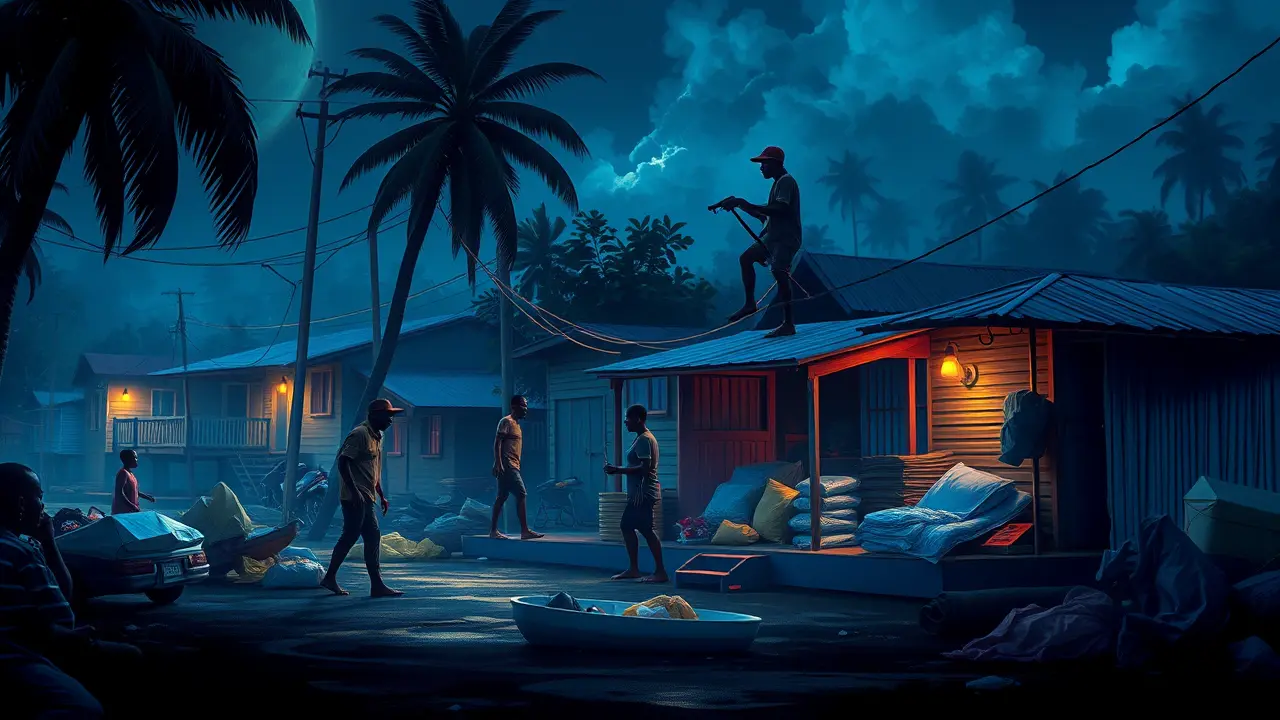
Otheraccidents & disastersSearch and Rescue
Desperate Scavenging for Food in Hurricane-Hit Jamaica.
EM
Emma Wilson
2 days ago7 min read
The raw, desperate struggle for survival in the wake of a catastrophic hurricane is unfolding in the streets of Black River, Jamaica, a community that has been entirely bypassed by the official aid convoys and now exists in a state of nature where the most basic human need—food—has become the singular, all-consuming objective of daily life. Residents, their voices strained with a mixture of exhaustion and defiance, have given firsthand accounts to the BBC, painting a picture not of a temporary disruption but of a systemic collapse where the social contract has frayed to nothing.This isn't merely a story about a storm's immediate aftermath; it is a profound case study in the failure of disaster response infrastructure and the terrifying resilience of the human spirit when pushed to its absolute limits. The scene in Black River is one of heartbreaking ingenuity born of necessity: families foraging for unripe fruit from downed trees, fishermen assessing the ruin of their boats and nets with hollow eyes, and the elderly, who are always the most vulnerable in these crises, waiting in the shade of damaged homes with a quiet, terrifying patience.Historically, Jamaica has weathered its share of hurricanes, from the devastating Hurricane Gilbert in 1988 to more recent brushes with major storms, but the narrative from survivors in Black River suggests a new level of isolation, a feeling of being utterly forgotten by the central government and international aid organizations whose promises are heard on crackling transistor radios but never materialize on the ground. Experts in disaster management, when consulted on such scenarios, point to the 'second disaster'—the logistical and political breakdown that follows the initial environmental impact.The bottleneck isn't always a lack of supplies; it is often a catastrophic failure of distribution, where supplies languish in warehouses or at airports, unable to navigate ruined infrastructure or stymied by bureaucratic inertia and, in some of the most tragic cases, outright corruption that diverts life-saving resources away from those who need them most. The consequences of this failure are both immediate and horrifically long-term.Beyond the gnawing hunger, the lack of clean water and sanitation creates a fertile ground for cholera and other waterborne diseases, turning a natural disaster into a public health catastrophe. The psychological trauma, the 'storm after the storm,' will leave deep scars on the community's psyche, fostering a deep-seated distrust of authority that could take generations to heal. The situation in Black River is a stark warning, a microcosm of what can happen anywhere when preparedness plans are exposed as paper tigers and when the most vulnerable are left to fend for themselves, fighting not just against the elements, but against the crushing weight of institutional neglect.
#hurricane
#Jamaica
#disaster relief
#food shortage
#Black River
#survival
#featured
Stay Informed. Act Smarter.
Get weekly highlights, major headlines, and expert insights — then put your knowledge to work in our live prediction markets.
Comments
It’s quiet here...Start the conversation by leaving the first comment.
© 2025 Outpoll Service LTD. All rights reserved.